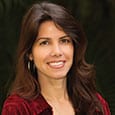.jpg)
My son Andrew recently returned from a semester abroad studying political science at University of Stirling in Scotland. Talking with him brought back many memories of my two years in France, and it made me appreciate the many opportunities that are now available for undergraduate college students who desire an international experience. Maybe a year abroad would be ideal for you.
In 1980 I was in my sixth year as a member of the United States Army Band “Pershing’s Own” in Washington, D.C.. I had joined at the age of 20. Being a part of high-profile events in the nation’s capital was both an honor and a joy; however, I never really considered it as a career choice.
While in the Army I also worked hard to complete bachelor’s and master’s degrees, as well as most of a doctorate at Catholic University. I studied with Bernard Goldberg for four years, driving to Pittsburgh about every other week. His meticulous regimen prepared me well for life after the Army.
My commanding officer stared at me with wide-eyed amazement when I turned down his offer of promotion upon reenlistment to pursue studies in France. I had met Michel Debost the previous year, thanks to my friend Penny Fischer, and played for him during a masterclass sponsored by the Flute Society of Washington. During the following year I maintained contact with him and eventually applied for a scholarship from the French government. In August 1981 I departed for Paris for a two-year adventure of study and introduction to a larger world.
Michel Debost held classes in his home in the Parisian suburb of Levallois Perret. The students were mostly Americans, with the exception of an Argentine and a Briton, who happily maintained a close friendship, in spite of the 1981 Falkland Crisis between those two countries. There was little association with actual French flute students that fall, a situation that was remedied in the spring when Debost filled in for the indisposed Jean Pierre Rampal at the Paris Conservatory. Debost invited us to audit his classes there and hearing those young superstars was truly inspiring.
Debost’s teaching style merited its renown. We studied in the European class format. Each student was assigned a time to play, though all were required to listen to the others. Debost insisted that each student play the week’s materials front to end “nonstop,” as he would say, at the beginning of each lesson. Only by this technique could one know how much of the material was truly learned. The faults determined the practice agenda for the lesson or for work at home. I still use this technique as one of my primary teaching and personal practice tools.
At the end of the year, Debost rented a bus and took his conservatory class and private class on a picnic. We each were responsible for part of the day’s menu, though he insisted that Americans prepare the brownies.
My scholarship was administered by a French government agency called CROUS (Centre régional d’œuvres universitaires et scholaires). CROUS also organized various excursions that the scholarship recipients (called boursiers) could sign up for at little expense.
I spent my first Christmas vacation on a trip to Cap d’Ail in the south of France. I was the only music student and the only American, so I had the opportunity to meet students from a wide range of backgrounds and nationalities. I became close friends with several Lebanese students (Lebanon was in the throes of a civil war, and France with its historical ties became a refuge for numerous displaced Lebanese students).
At the end of the first year CROUS organized a musical tour of the Lot and Limousin regions for the musician boursiers. We arranged ourselves into various small ensembles and presented a half-dozen concerts over 10 days. We appreciated a region of great physical beauty and culinary delights—especially the paté de fois gras.
Pavel Foltyn, from what was then Czechoslovakia, was one of my fellow flutist boursiers. He was studying with Christian Lardé, and we became good friends, playing together during the tour and on several other events. Hearing about his difficulties securing travel visas from the then communist regime in Prague made me appreciate the freedom that Americans often take for granted. Pavel went on to have a successful career as an orchestral musician and solo artist in the Czech Republic.
CROUS arranged for many of us to attend the Académie internationale d’été at Nice in summer 1982. There, I participated in Alain Marion’s classes. I continued to study privately with him at his home the following year.
Living situations in Paris were difficult. I spent the first year in the suburb of Clichy living above an air conditioning company and the second year in a little apartment near the Porte de St. Martin that never saw the light of day, right across from the Marcel Marceau School of Mime on Rue René Boul-anger. Daily life was occasionally tough, but it was the experience of a lifetime.
Studying with world-class artists aside, there are compelling reasons to make study abroad part of your professional formation.
A New Language
If you choose to study in a foreign country where English is the primary language, then obviously learning a new language is not a major reason to study abroad, though becoming familiar with other dialects of English is in itself an important experience. Americans are all too often encapsulated by their native language and dialect. Learning a different language not only serves the practical purpose of communication; it permits you entry into different modes of thought and expression. Learning a new language also gives you a heightened awareness of your native tongue.
I remember the Christmas at Cap d’Ail, a teacher of French from Greece leaned over the table one evening, fixed his eyes on mine and said, “My young American friend, always learn the languages of your enemies.” Well, I didn’t think I had any enemies, but I interpreted his advice to mean that, through learning another’s language comes understanding, not only of the practical, but also the inner thoughts, cares, and aspirations of people from a very different part of the world. With language comes empathy and affinity. As a college educator I highly encourage foreign language study, even when it is not a requirement.
As far as language in flute lessons, I spoke mostly English with Michel Debost, as he was perfectly bilingual, most of the class members were American, and I was still relatively inexperienced in daily French. However, by the time I studied with Marion I was fairly proficient in French. The Nice classes were conducted in French, and I naturally continued work with him in that language. I remember being very surprised when I heard him speak in English at the National Flute Association Convention a number of years later. I asked him why he never told me he spoke English. He responded, “You never asked.” I believe it was more likely that he accommodated my desire to improve my French. In either case, I soon learned that it’s respectful to respond in the language in which one is addressed when in bilingual situations.
Culture
French culture is extraordinarily rich. Visual art, music, literature, and architecture are all overwhelmingly present in Paris. Students were a privileged class and received free or greatly reduced admission to almost everything. Interacting with the French people was a new and sometimes challenging experience. French culture is generally more formal than American culture. It was difficult, if not impossible, to know all the social customs and sensitivities, and small gaffes were inevitable. For instance, though chrysanthemums are common for all sorts of occasions every fall in America, in France they are the official flower for remembering the deceased on All Saints Day on November 1st. You wouldn’t casually give chrysanthemums to anyone in France. This and countless other social discoveries were sometimes slightly embarrassing but always interesting. Debost was great at giving us a heads up on customs, upcoming events, and celebrations.
A Change in Perspective
A new objectivity toward your own country develops when you study abroad. In the 1980s Paris had two major newspapers, Le Monde (left leaning) and Le Figaro (right leaning); there were also a slew of smaller papers – the Herald Tribune (in English), the politically satirical Le Canard enchainé, and many more. With the exception of Sunday when there was no newspaper – another cultural curiosity – the French react to any news event in a variety of political flavors. They loved politics and reading their reaction to events back home was often revealing.
I remember that the French were apprehensive about the recent election of Ronald Reagan (he had been wounded by John Hinckley, Jr. the previous spring), especially when he fired the air traffic controllers (that, unfortunately, was about the time I was departing for France). However, his appointment of Sandra Day O’Connor as the first woman Supreme Court Justice was very appealing. I recall Debost commenting that most French found political refuge in being “extremists of the center.”
Interesting Experiences
My daily life in France was probably harder than what most Americans experience when they visit France. Other than Debost’s class, I intentionally made decisions that avoided Americans and immersed myself in the mundane aspects of French life. Rather than live in a dorm full of other Americans, I chose to live in an apartment, and mechanical things went wrong with it on a daily basis.
I remember numerous trips to the nearby quincaillerie (hardware store) and the challenge of describing in a foreign language what had gone wrong and the possible solutions. Luckily, I was able to hang around the workers at the air conditioning company quite a bit and their patient explanations of all things mechanical and identification of everything from a screwdriver (tournevis) to a faucet washer (rondelle de robinet) armed me with an experience and vocabulary far beyond that of my compatriots.
Living and studying abroad requires some courage, a sense of adventure, and the willingness to not always have it your way. It requires a sensitivity to the customs of others, an interest in other cultures, and a desire to broaden your life experience. Study abroad is not for everyone, but it was a life-changing experience for me, and more recently for my son Andrew. The opportunities have never been more numerous and easier to find than they are right now. Check with your college or university’s foreign studies office, and visit the ISEP International Student Exchange Program website www.isep.org for a start.





